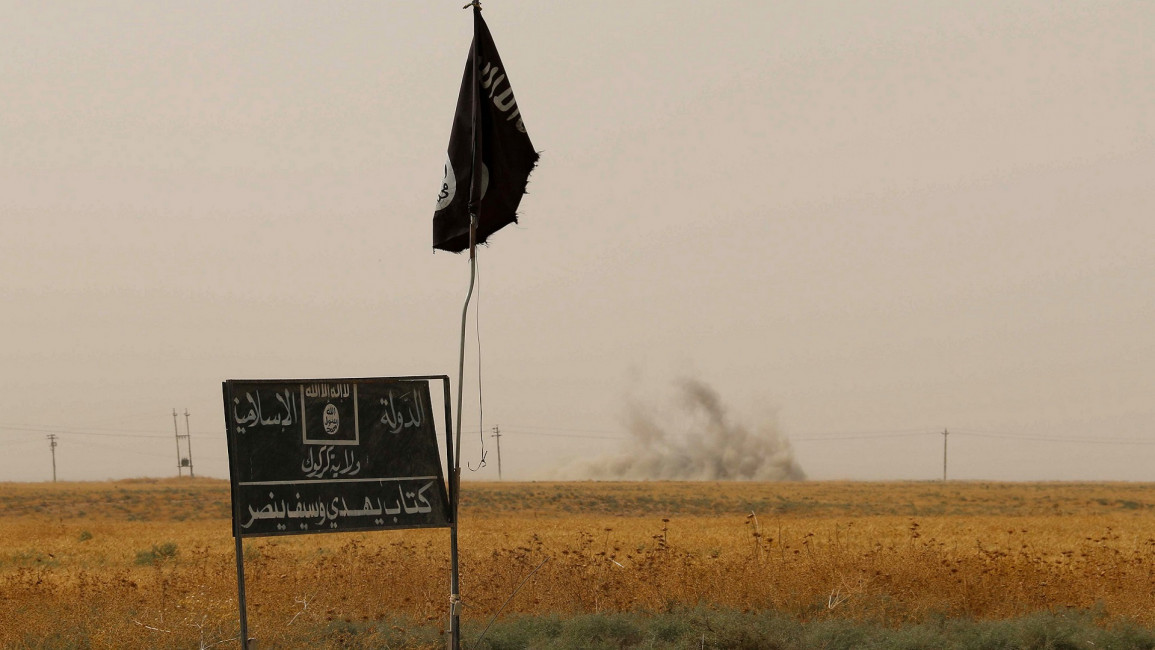Saudi IS recruits urged to surrender at Baghdad embassy
Saudi IS recruits urged to surrender at Baghdad embassy
They will be treated 'leniently' if they turn themselves in at the new embassy, Riyadh's ambassador to Iraq has announced.
1 min read
IS fighters will apparently be treated "leniently" if they hand themselves in [Getty]
Saudi citizens fighting as part of the Islamic State group in Iraq will be treated with leniency if they turn themselves in at the new embassy in Baghdad, officials said on Wednesday.
The move was announced by the new Saudi Ambassador to Iraq, Thamer Al-Shabhan, as part of an apparent attempt towards greater cooperation between the two countries to tackle IS militants.
According to the Kurdish news outlet Rudaw, Shabhan said the embassy would provide the necessary facilities to Saudi nationals who are fighting in the war-torn Shia-majority country - if they surrender.
Fear of retribution has previously stopped many Saudi fighters from leaving the group, officials claimed.
The Saudi embassy in Iraq opened this week, 25 years after it was closed during the 1990-1991 Gulf crisis when Saddam Hussein invaded Kuwait.
Shortly after the embassy's opening, it was stormed by protesters who opposed Riyadh's execution of Shia opposition figure Sheikh Nimr Nimr.
Thousands of Iraqis also gathered outside Prime Minister Haider al-Abadi's office and called for the government to sever diplomatic ties with Riyadh.
In response, Abadi said that regional tensions should be faced "wisely, responsibly and rationally in order to preserve the security and stability of Iraq".
The move was announced by the new Saudi Ambassador to Iraq, Thamer Al-Shabhan, as part of an apparent attempt towards greater cooperation between the two countries to tackle IS militants.
According to the Kurdish news outlet Rudaw, Shabhan said the embassy would provide the necessary facilities to Saudi nationals who are fighting in the war-torn Shia-majority country - if they surrender.
Fear of retribution has previously stopped many Saudi fighters from leaving the group, officials claimed.
The Saudi embassy in Iraq opened this week, 25 years after it was closed during the 1990-1991 Gulf crisis when Saddam Hussein invaded Kuwait.
Shortly after the embassy's opening, it was stormed by protesters who opposed Riyadh's execution of Shia opposition figure Sheikh Nimr Nimr.
Thousands of Iraqis also gathered outside Prime Minister Haider al-Abadi's office and called for the government to sever diplomatic ties with Riyadh.
In response, Abadi said that regional tensions should be faced "wisely, responsibly and rationally in order to preserve the security and stability of Iraq".

![A Palestinian girl stands amid the rubble of her destroyed home on 24 May 2021 in Beit Hanoun, Gaza. [Getty]](/sites/default/files/styles/image_212x120/public/2021-06/GettyImages-1233090336.jpg?h=a4507e6b&itok=XJNlCZFA)

